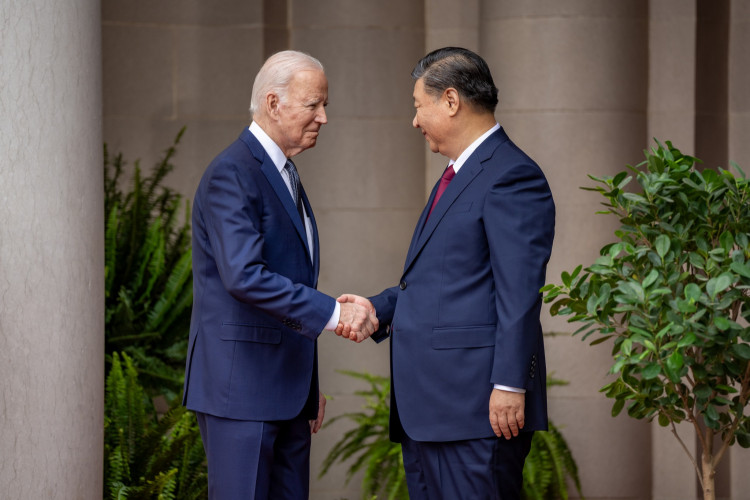U.S. President Joe Biden has announced significant tariff increases on a range of Chinese imports, including electric vehicles (EVs), semiconductors, and other critical goods. This decision comes amid ongoing trade tensions and national security concerns.
The new tariffs, unveiled during a White House speech on Tuesday, mark a substantial escalation in U.S. trade policy towards China. They include a 100% tariff on electric vehicles imported from China, up from the current 25%, and a 50% tariff on Chinese semiconductors, set to take effect by 2025. Additionally, tariffs on lithium-ion batteries, solar cells, steel, aluminum, and certain medical supplies will see significant hikes.
The Biden administration argues that these measures are necessary to counteract China's unfair trade practices, which have flooded global markets with underpriced goods, undermining U.S. industries. "China's using the same playbook it has before to power its own growth at the expense of others," said Lael Brainard, director of the White House National Economic Council. "These tariffs will ensure that American businesses and workers have the opportunity to compete on a level playing field."
The timing of the announcement is politically charged, coming as Biden seeks to solidify support among working-class voters in key Midwest battleground states, such as Michigan, the heart of the U.S. auto industry. The tariffs are also part of Biden's broader economic agenda to stimulate a manufacturing boom focused on electric vehicles and clean energy.
The tariff increases have drawn sharp criticism from Chinese officials. Wang Wenbin, a spokesman for the Chinese Ministry of Foreign Affairs, condemned the tariffs as "self-defeating" and contrary to the consensus reached by Biden and Chinese President Xi Jinping during their summit in San Francisco last November. "It will harm the world's green economic transition and climate action," Wenbin warned, urging the U.S. to create conducive conditions for China-U.S. climate cooperation.
Despite these objections, the Biden administration is pressing ahead with the tariff hikes, citing the need to protect U.S. industries and national security. "China can't be the only country that produces clean technology for the world we need," a senior administration official said. "We need diversified, not concentrated, production of our most critical goods and technologies."
The new tariffs follow a comprehensive review of tariff rates over the past year, retaining many of the hikes imposed by former President Donald Trump. Biden has sought to distinguish his approach from Trump's broader tariff proposals, which he criticized as potentially harmful to American consumers. Trump had proposed a 60% tariff on all Chinese imports, whereas Biden's increases target specific sectors deemed strategic to national security.
China's response is anticipated to include countermeasures, as hinted by Wang Wenbin, who stated that China will "take all necessary measures to defend its rights and interests." This tit-for-tat escalation recalls the trade war during the Trump administration, which saw China imposing tariffs on $101.4 billion in U.S. exports, affecting nearly 300,000 American jobs according to the Brookings Institution.
In addition to tariffs, Biden has taken steps to curb Chinese influence in other areas. Recently, he issued an executive order forcing MineOne, a Chinese-backed cryptocurrency mining company, to sell its land near the Francis E. Warren Air Force Base in Wyoming due to national security risks. This move underscores Washington's broader strategy to limit Chinese companies' impact on U.S. consumers and national security, particularly ahead of the 2024 presidential elections.
Biden's tariff increases also align with his administration's efforts to spur over $860 billion in private investment in U.S. manufacturing through legislation incentivizing the production of electric vehicles, clean-energy products, and microchips. These initiatives are part of a broader push to secure resilient supply chains and foster domestic innovation in critical technologies.
"The president's actions ensure that American businesses and workers can compete in industries vital to our future," Brainard emphasized. The tariff strategy aims to support Biden's vision of a rejuvenated American manufacturing sector, capable of leading the global transition to clean energy and advanced technologies.





